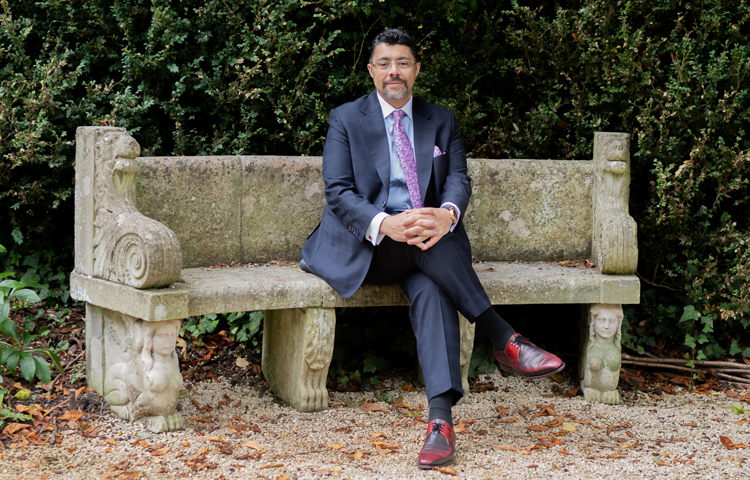Introducing Ciarb’s new 2025 President, Professor Dr Mohamed Abdel Wahab C.Arb FCIArb
 We spoke to Professor Dr Mohamed Abdel Wahab C.Arb FCIArb about his Ciarb journey, and why integrity is the cornerstone of alternative dispute resolution (ADR).
We spoke to Professor Dr Mohamed Abdel Wahab C.Arb FCIArb about his Ciarb journey, and why integrity is the cornerstone of alternative dispute resolution (ADR).
What will be your first steps as President?
Being President is an ambassadorial role, and my hope during the year is to promote Ciarb’s role in thought leadership, global capacity building, diversity and inclusion within alternative dispute resolution (ADR). In terms of being the first President from Egypt and also for Africa, it means a great deal. I hope that Ciarb’s 44 global Branches will work with me to ensure that our membership is diverse and inclusive. Ciarb wants to support more professionals become qualified to take on the role as dispute resolvers.
As well as your work as an arbitrator, you’re also an academic and a tutor. How do the two complement each other?
I enjoy teaching as I have a strong bond with those who I teach - it’s my passion. I firmly believe that it is important to train and educate people professionally and ethically. I also enjoy sitting in arbitration cases and doing work in high profile counsel cases because that helps me appreciate different practices, cultures, laws, and also engage with new people. I learn a lot from each and every experience, and that shapes me as both a human being and as a professional. What I learn can then be applied in other cases, which is always an enriching experience.
Can you describe your Ciarb journey?
I must say my Ciarb journey has been a long one; I’ve spent almost half of my life with Ciarb. I started as being a member of the Egyptian Branch in 1998, then rising to become a committee member for the Branch, then moving to become a Vice Chair, then a Chair, then becoming a member of the Board of Management for Ciarb, then elected to become a member of the Board of Trustees for the MENA and India subcontinent, and then taking helm of Presidency in 2025. Along the way, I've also taken on the role of a tutor, the Director of the Global Diploma in International Commercial Arbitration, and helped with the development and drafting of guidelines that are at the forefront of thought leadership in the ADR community today.
What does Ciarb mean to you?
Thought leadership, capacity building, integrity and ethics. As a global community and a global powerhouse, Ciarb helps with the policy-making of developing best practices in ADR. Secondly, Ciarb’s hallmark is its engagement with capacity-building in terms of education and training. Thirdly, in terms of ethics and integrity, it’s not just about doing your work professionally, but how you do that elegantly with ethics and integrity. The emphasis on ethics and integrity cannot be too strong because it cements the legitimacy of what we do.
How important are ethics and integrity to ADR?
Ethics and integrity are indispensable to ADR. The foundation of ADR processes as private mechanisms to resolve disputes between people is based on trust and confidence. Dispute resolvers have two main duties, to be impartial and independent. The legitimacy of the whole process is premised on the idea of ethics and integrity. ADR professionals must project integrity and act consistently in accordance with these hallmarks. It defines the work we do and inspires others to trust us and appreciate that ADR is a proper way to resolve disputes amicably and peacefully.
Read more about Professor Dr Mohamed Abdel Wahab C.Arb FCIArb’s role here.



